
I was about to go pick pears. I’m spending the fall at the Helene Wurlitzer Foundation, an artists’ residency program in Taos, New Mexico, where one of the other artists had procured a ladder and said I could join her if I liked. But just as I finished my breakfast and my tea-and-scribble hour, I saw her pedaling her bike back down our road with two white bags pendulant from her handlebars. I’d missed my chance.
I’ve noticed that this northern New Mexico light as it passes through the Siberian elms nearly matches the green of the pears. Just a hint of yellow, hint of spring, the hue of birth in the season of death. My friend the poet Laurie Kutchins knows about this cycle: “birth breath / death breath / crow and stork,” she writes in a poem called “Prayer.” We have no storks here in the high desert but plenty of corvid species, from magpie to raven. The biggest birds sunbathe each morning, wings outstretched, in the high reaches of the elms. A dozen or so of them spread across several trees, taking a daily break from roadkill to enjoy this peerless light.
I began this post on a Saturday, which I have determined will be my (lower-case) sabbath each week of my 12-week sabbatical. A sabbath within a sabbatical—would that mean time off within my time off? Not quite. But I am allowing this place to help me redefine certain words, like work, routine. So far my daily rituals have included being outside for sunrise and sunset. As the equinox approached and passed, I saw more clearly what the balance of day and night (light and dark; activity and rest) can mean to the mind. I’m aware now of the shortening of each day and its effect on the birds, the temperatures, and my own poetical cycles.
This newborn alignment with natural rhythms is restoring me to something I’m daring to call happiness.
This month, I’m honored to say, my poem “The Donor at the VLA” has been published in the health policy journal Health Affairs, one of three winners of the 2015 Narrative Matters Poetry Contest. (There’s also a podcast of each of us reading our poems.) I love that a policy journal has made room for poetry. Health Affairs has long had a commitment to stories with its monthly Narrative Matters column, which demonstrates, over and over again, how policy affects real lives.
But why poetry? What can a poem achieve that a story can’t?
On this New Mexico sabbatical I am taking my poetry as spiritual medicine. I’ve given myself the task of memorizing a poem per week. The first was a poem by a former Wurlitzer resident, Robert Creeley. I found a 50-year-old book of his, For Love: Poems 1950–1960, in the fellows’ library here. Here’s the beginning of “A Song,” written in the late 1950s and dedicated to his former wife, Ann.
I had wanted a quiet testament
and I had wanted, among other things,
a song.
That was to be
of a like monotony.
(A grace
simply. Very very quiet.
The passage can be read as a single sentence. But Creeley doesn’t want us to do that. His indentations, oddball phrasings (“of a like”), and against-the-grain punctuation (no closing parenthesis) interrupt the usual syntax to force a slow reading. I hear it in my own recitation as a musical utterance. A song. In repeating the word quiet Creeley invokes that quality—an invocation that has helped me to arrive into this new place with a new intention.
In my teaching I often read poems with nursing students, nursing faculty, and working clinicians. Poems can confer something rare in health care—or anywhere—a slice of sabbatical. The poet Mark Doty, in his fine book The Art of Description: World Into Word, discusses “lyric time,” in which a reader of a poem finds herself suspended, with no action required beyond reflection: “a slipping out of story and into something still more fluid, less linear: the interior landscape of reverie.”
That idea of slipping out of story, as out of the day’s work clothes, has something in common, I think, with Abraham Joshua Heschel’s conception of the Jewish Sabbath. He writes, in Between God and Man, “There is a realm of time where the goal is not to have but to be, not to own but to give, not to control but to share, not to subdue but to be in accord.”
That may seem a tall order for a poem, and I realize not all poets align themselves with such
an aim. And yet: “Poetry is how we pray, now,” Yahia Lababidi put it the other day on the Best American Poetry blog. He wrote that poems can act as “a sort of journalism of the soul, reporting on the state of our spiritual life.”
Maybe that’s the medicine poetry has to offer health care and health policy: a “quiet testament” reporting on the human beings at the heart of a vast and sometimes spiritless industry.
Don’t take a poet’s word for it. In August U.K. researchers reported the results of a study (abstract here) in which subjects read “complex poetic and prosaic texts” and underwent functional MRI of the brain. The researchers found that recognizing poetic qualities enhanced “capacity to reason” and exerted a modulating influence on the right dorsal caudate, “which may be related to tolerance of uncertainty.”
The tolerance of uncertainty: that sounds a lot like Keats’s negative capability principle, his term for the poet’s capacity for “being in uncertainties, Mysteries, doubts, without any irritable reaching after fact & reason.” It sounds too like the work of sabbatical. It’s not easy; it involves listening, to the self and to the world; and it means contending with some old pain, old fear, on the way to gratitude.
What a privilege this opportunity is. Three weeks in, I’m still arriving. I’m sorry I missed the pears. But there are still some apples on the trees.



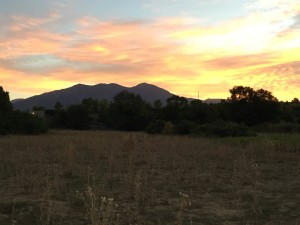
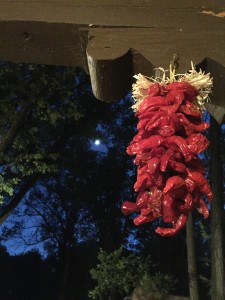
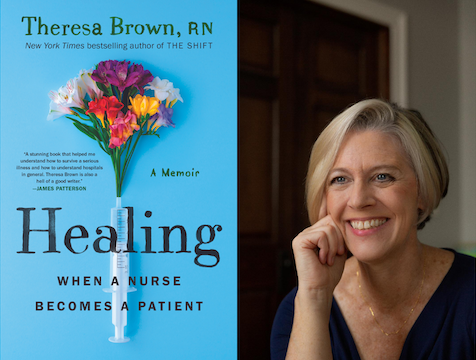
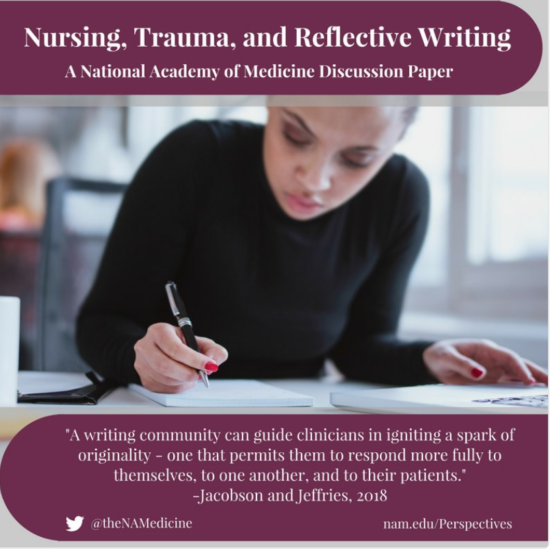
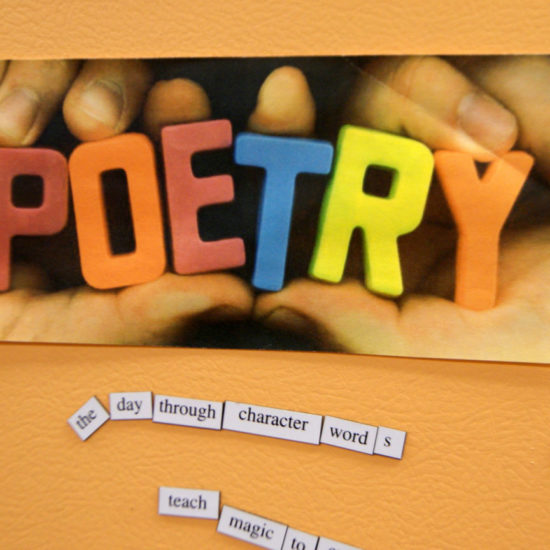
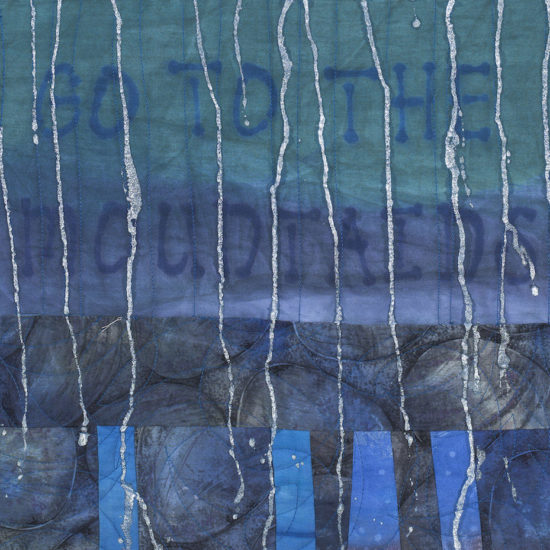

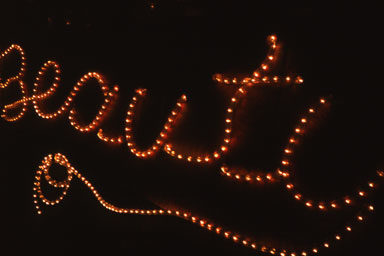
Diana Mason / October 6, 2015
Lovely. Simply lovely. Thank you, Joy.
/
Joni Jacobson / October 8, 2015
My sister, you have arrived! The world awaits your Gift and I am so proud of you!
/
Zunilda / November 9, 2015
Joy thank you for sharing this moving and thought provoking essay about poetry and spirituality…. Your work is a superb medicine–one with the power to cure the soul and improve lives… You are a beacon of light for humanity… May your special time iin Wurlitzer ncrease your joy and ours…
Yours truly,
Zunilda
/